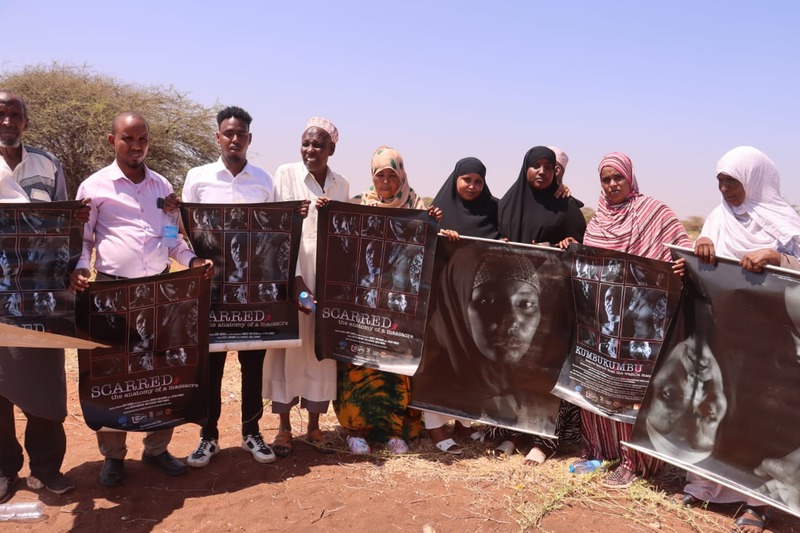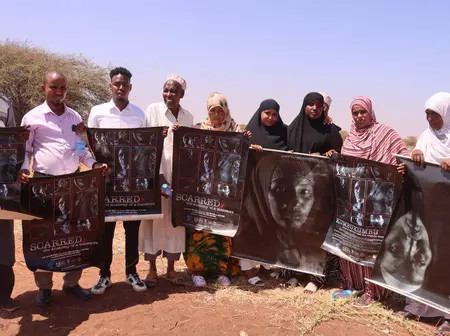
Wajir West MP Yussuf Mohamed Farah has lodged a formal protest with President William Ruto and former Prime Minister Raila Odinga, challenging the government’s initiative to compensate victims of police brutality only up to the year 2017.
In his letter, the lawmaker calls the move a “discriminatory” step that deliberately excludes victims of earlier and more egregious state-sponsored violence.
“The government is deliberately excluding victims of earlier and more egregious violations, most notably the Wagalla Massacre of February 1984,” Farah stated.
He detailed the event, in which thousands of innocent civilians from the Somali Degodia community in Wajir were “unlawfully detained, tortured by being set on fire and shot… and executed by members of the Kenyan Army.”
The lawmaker wants the massacre victims compensated, but has cast doubt on the team chaired by Ruto’s constitutional affairs adviser, Makau Mutua.
The MP provided a history of broken promises, noting that President Daniel arap Moi first pledged compensation in 1992.
Decades later, the Truth, Justice and Reconciliation Commission (TJRC) confirmed the mass slaughter and recommended reparations, followed by a presidential apology from President Uhuru Kenyatta in 2015.
However, despite the assurances and public remorse, the financial reparations have never been paid, hopes dashing for the victims as the days go by.
Farah argues that the current compensation framework violates the Constitution, specifically citing Articles 10, 27, and 28, which guarantee national values of inclusivity, equality, freedom from discrimination, and respect for human dignity.
The MP has presented three key demands to the state, including an immediate expansion of the compensation framework.
“Immediately expand the compensation framework to include all victims of police and state brutality, regardless of the year the violation occurred.”
Farah further wants the government to issue a public statement committing to a transparent and equitable reparations process.
He concludes the letter with a stern warning that should the government proceed with the exclusionary plan, the victims will be left with no recourse but to challenge the decision in court.
“This protest is not in opposition to the pursuit of justice for any victim,” Farah wrote, “but in pursuit of equal justice for all.”
In August 2025, President Ruto established a state-backed team to develop a framework for compensating victims of public protests and riots, a move that has since become the subject of both praise and legal challenge.
Ruto issued a presidential proclamation creating a framework to address harms suffered by civilians and security personnel during protests dating back to 2017.
He described the initiative as a matter of “compelling national interest” aimed at fostering accountability and national healing.
The framework operates under the Executive Office of the President and collaborates with the Office of the Attorney General, the Ministry of Interior and National Administration, and the National Treasury.
The establishment of the team was seen as a response to years of protest-related casualties and a key demand from Opposition leader Raila Odinga, whose party, Orange Democratic Movement (ODM), is currently in a cooperation pact with the ruling party.
The move was announced amid reports of 61 people killed during recent Gen Z-led protests, before the plan faced significant hurdles.
On September 8, 2025, the High Court in Kerugoya issued conservatory orders halting the implementation of the compensation plan.
The court suspended the gazette notice that appointed the 18-member panel and the original proclamation, following a case filed by critics who argue the panel lacks a constitutional basis.
The case is scheduled for mention next Monday, October 6, 2025.
INSTANT ANALYSIS
The Wagalla Massacre stands as one of the most horrific episodes of state-sponsored violence in Kenya’s post-independence history. It occurred in February 1984 at the Wagalla Airstrip in Wajir, Northeastern Province.
The Kenyan Army, ostensibly conducting a security operation to disarm and investigate a planned rebellion by the Somali Degodia clan, rounded up thousands of predominantly male civilians.
The victims were subjected to brutal and inhumane conditions. They were unlawfully detained in the open, tortured, and denied food and water.

Leave a Reply